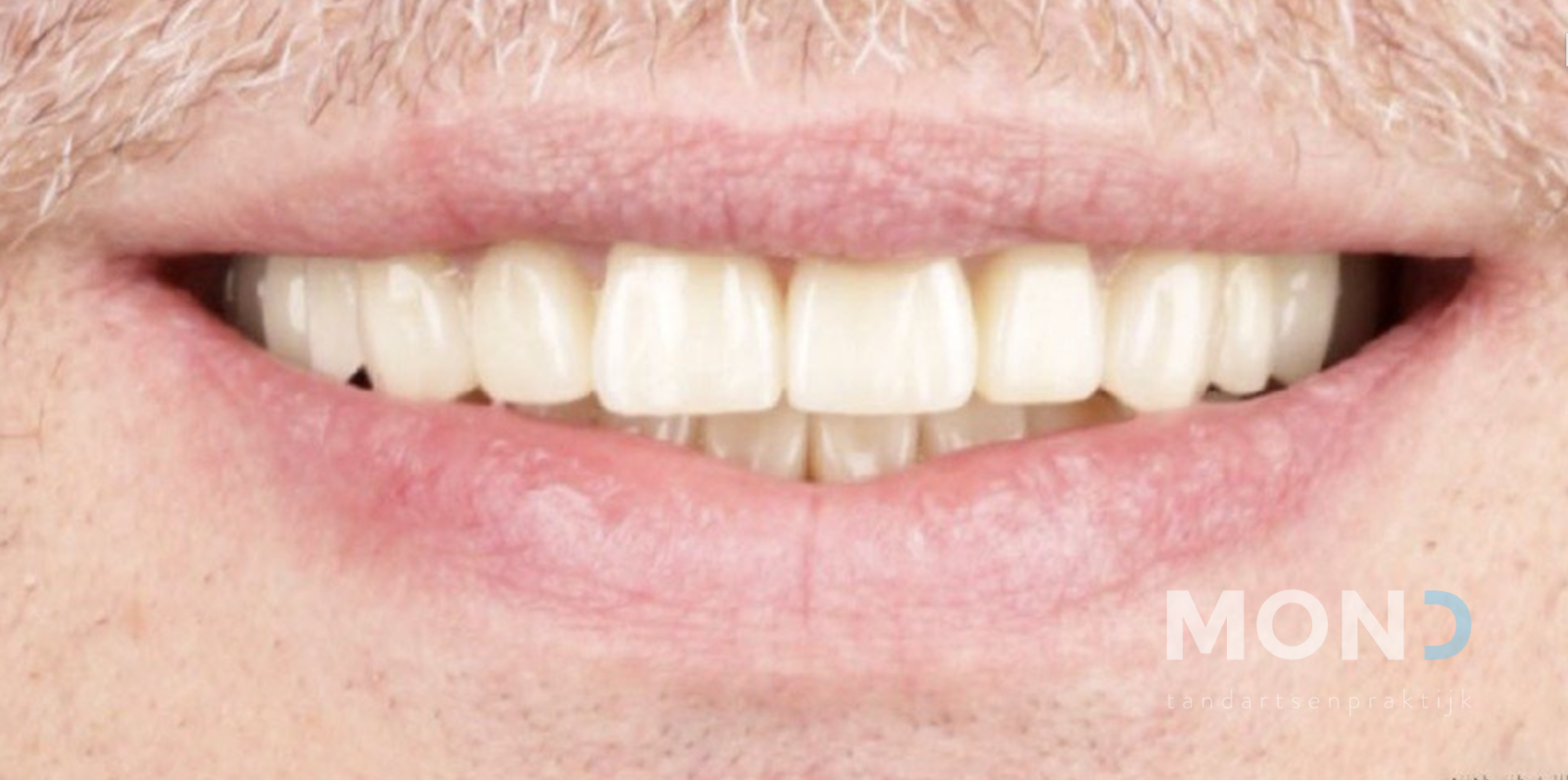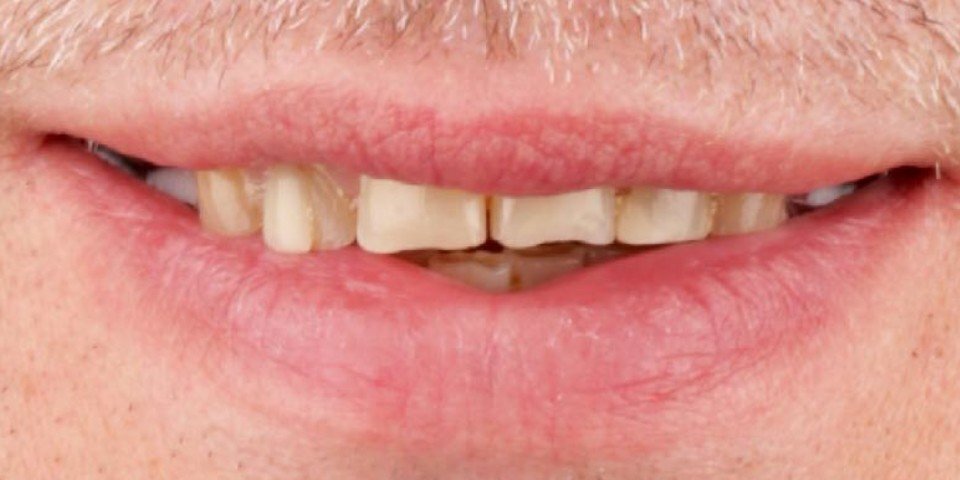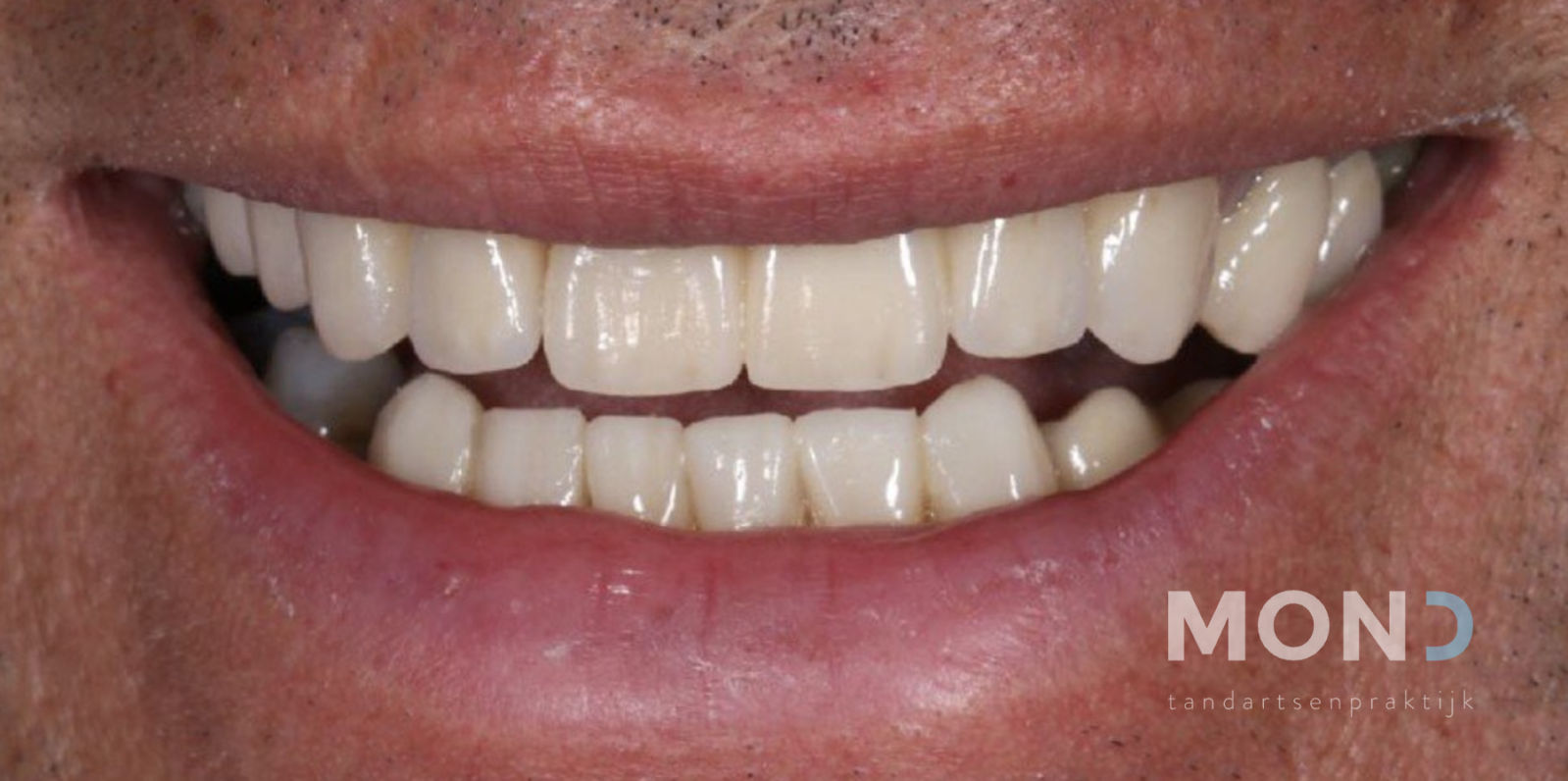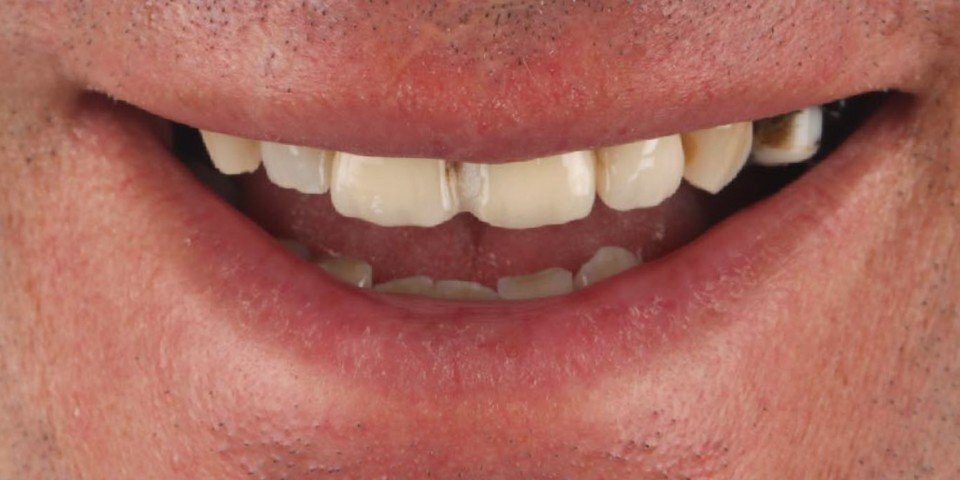Dental implants
The introduction of implants revolutionised dentistry. By performing specific processes, it is possible to place screws (usually made from titanium) into your jawbone; these are called implants.
How do implants work?
The specific pretreatment of these implants allows them to become biologically integrated into your jawbone without your body rejecting it. These implants serve as a new base that we can use to create new dental structures such as crowns (for individual tooth replacements), bridges (for multiple tooth replacements) or as a retention system for dentures to provide greater grip and hold.
During the early years of implantology, only long, large implants could be positioned and this was not always possible if there was an sufficient quantity of jawbone available. With the continuous development of new implant designs and surface treatments on implants, we can now even position them quite often in those areas where there is very little bone left, meaning you can once again have teeth that feel comfortable.

The longevity of implants
Today, the survival success rate of implants is between 95% and 99%, but we know that this can decrease in the following cases:
- Poor oral hygiene
- Smokers, since reduced blood flow results in lower levels of integration
- Periodontitis where inflammation of the jawbone also affects the implants
- Immunity problems that may cause impaired healing
- Uncontrolled diabetes
- Advanced treatments involving bisphosphonates, which reduce the flow of blood to the jawbone
Implants are certainly not a magic solution, and preserving your own teeth is still our number one priority. However, the arrival of implants has meant that even after you lose your teeth, you can still enjoy a good quality of life by ensuring you can still chew well and by restoring the appearance of your teeth.
The quality and price of MOND implants
Implants are placed in MOND practices under the most hygienic and optimal conditions by licensed implantologists with extensive training and experience. Each treatment is preceded by a screening of your teeth, a discussion of the available options and a price estimate.
The Belgian mutuality (health insurance fund) considers these treatments to be a “luxury” and will not, therefore, reimburse them. Additional dental insurance can help to cover these costs, although the level of need should be considered in accordance with your insurance's deferred period. Only patients who are over 70 years of age can be reimbursed for 2 implants and snap-on dentures in the lower jaw in circumstances where a conventional removable set of dentures would no longer provide sufficient stability or grip.
Recover you smile


Restoration of functionality using crowns and implants after grinding
Discover this smile | Restoration of functionality using crowns and implants after grinding

Implants and crowns for better oral functionality
Discover this smile | Implants and crowns for better oral functionalityIs a dental implants something you’re interested in?
Check out the practices that offer dental implants below:
MOND Groen Kwartier
Pater Pirestraat 50,
2018 Antwerpen
MOND Paro Plus
Louis Marcelisstraat 25a,
1970 Wezembeek-Oppem
MOND Dentopolis Leuven
Martelarenlaan 42,
3010 Leuven
MOND Dentopolis Kortenberg
Leuvensesteenweg 638,
3071 Kortenberg
